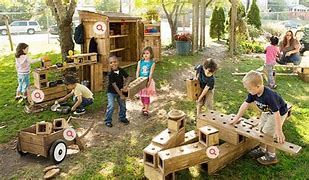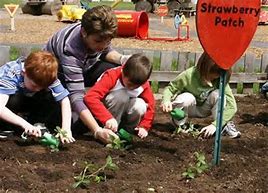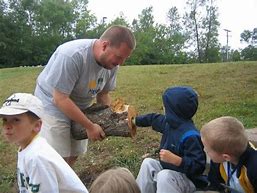EFFECTS OF NATURE-BASED PLAY ON CHILD DEVELOPMENT
- blkfizzlz
- Nov 11, 2021
- 3 min read
Updated: Nov 14, 2021

This is the technology age, but about 20 years ago, children were still encouraged to go outside and explore their neighborhoods. Today's parents can often be heard saying, "I wish my kids could be kids and just go outside and play." What is so special about playing outside? Studies have shown that being out in nature can affect every area of a child's development. Nature can affect cognitive, physical, emotional, social, and even self-regulation skill development. The article, The Nature and Nurture of Resilience: Exploring the Impact of Nature Preschools on Young Children's Protective Factors states, "students at the nature preschools increased in resiliency measures through the course of the schoolyear both in school and in the home setting. In nature preschools, both parent and teacher assessments showed an overall increase in students’ resilience...initiative and self-regulation categories..." (Johnson and Burcack, 2018). Children can learn how to play more cooperatively with peers, solve problems, regulate emotions, and develop more science and math skills. These skills are very important for preschoolers to develop, so that they are able to focus and learn more academic skills. (Parrish, 2021)
The TED Talk below highlights more benefits of nature play; health benefits like no asthma or allergies are effects of children who live on farms.
Risk Takers...YES!!!

"Get out of that tree! You're going to break your neck." "Sit down on your bottom when you are going down the slide. You don't want to fall." Many of us have heard or have said those words. I think that when children are able to take risks, they are able to learn more about their environment, their body, and develop emotionally. I have experienced some children who are scared to complete a climbing task that they feel is too high, but over time, with encouragement and observing other children, they begin to take a risk and try. They may not succeed at first, but they are able to problem-solve, strengthen motor skills, or learn how to work more cooperatively with others. When the child is finally able to complete the task, they build confidence and trust in their abilities and also learn more independence. I think that risk-taking in nature can teach children so many skills. When I used to teach, I loved taking materials outside into nature and allowing children to discover new ways of engaging with the materials. Children were able to learn mathematical concepts using pulleys, ramps, and pendulums; they were even able to build using larger materials, which sustained engagement for months. I really enjoyed it when children shared the experiences with their parents and were able to tell them about these advanced concepts. It was very informative for my parents to see that just going out in nature and exploring the backyard, could bring so many new experiences to their children. Also, going into nature, as a teacher, helped me to feel the excitement and kept me also learning more about the environment.
How can parents and teachers facilitate Nature-based play?
Parents can help facilitate nature play by encouraging children to play outside and to go outside and play with their children. Parents can do simple things like reading a book outside, having a picnic, or just discovering plants or insects in their backyard. Even just taking a walk around the neighborhood and looking at all the colors on the trees. Parents can help their children wonder by asking questions and "I wonder why" statements. I also think that parents can be open to the risks of climbing, jumping, and running in nature and guide their children on safety, but give them space to explore their environment and body. Teachers can help facilitate play by doing the same things that parents are encouraged to do in nature. Teachers should also plan open-ended activities that can happen in nature and be very intentional in what they are teaching children about. Teachers can utilize "loose parts" materials, such as sticks, rocks, and shells for classification and discovery. I think that another way that teachers can facilitate play in nature is to be open to more time being spent outside, being knowledgeable about new innovative ways of teaching, and learning more about things in nature (names of insects, types of clouds, parts of a plant), This will help teachers to be able to teach more in-depth concepts, build in language, and share information with parents.

Resources:
Berto, R. (2014). The Role of Nature in Coping with Psycho-Physiological Stress: A Literature Review on Restorativeness. Behavioral Sciences, 4(4), 394–409. https://doi.org/10.3390/bs4040394
Johnson, M. & Burcak, F. (2018). The nature and nurture of resilience: exploring the impact of nature preschools on young children's protective factors. The International Journal of Early Childhood Environmental Education. ISSN: 2331-0464.
Parrish, R. (2021, November 7). Effects of Nature on Mind & Brain Development [Slides]. CANVAS. https://csus.instructure.com/courses/82651/files/11194326?module_item_id=3625144
What nature teaches children | Nilda Cosco | TEDxRaleigh Jun 16, 2016







Comments